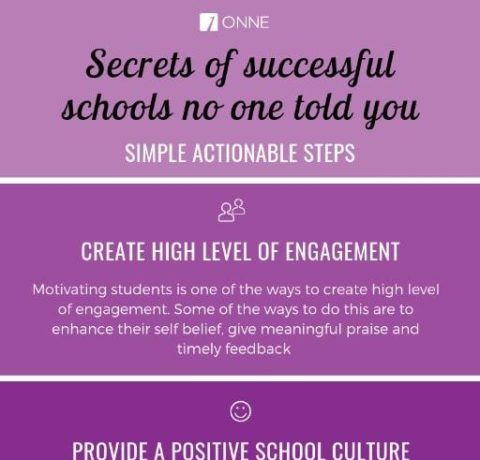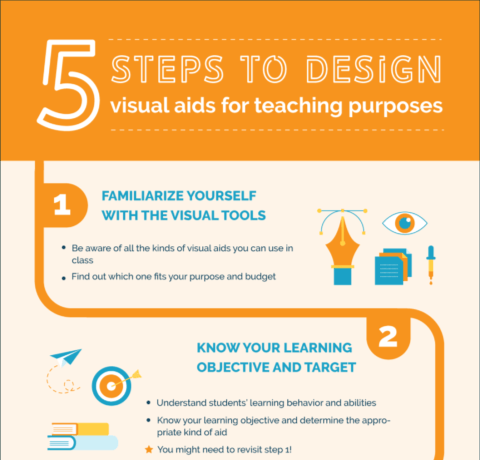8 Pieces of Advice for Student Teachers Infographic
Student teaching: an exciting, daunting, overwhelming and thrilling experience. It’s the first time you step back into the classroom on the other side of the desk and realize that the view is rather different from here. These are the eight things I believe all student teachers should know. The 8 Pieces of Advice for Student Teachers Infographic was created by Stacey Lloyl, a high school English Teacher with a passion for creating engaging classroom resources. Here are the eight things she believes all student teachers should know.
1. We were all student teachers once.
Sadly, you will encounter many teachers who seem to have forgotten this fact. They will be impatient with you. They won’t take the time to teach you (ironic, isn’t it?). They may be dismissive and patronizing. I am sorry about this, and I’m afraid you will just have to push through it, understand that it is not personal and search out the teachers who will take the time to mentor you. But more than that: learn from it. When you have been teaching for twenty years and a student teacher walks into your class, remember what it feels like, be patient and have a little grace for them.
2. All the good teachers cry at least once in their careers.
Ok, maybe not all. But I sure know a good number of incredible teachers who have cried after a class or two. It is nothing to be ashamed of: it’s not weakness; doesn’t make you less of a teacher; doesn’t mean that you aren’t cut out for the classroom. Often it means just the opposite: it shows that you care; it means that you have passion; it indicates that you are learning (which can be a painful experience). Allow yourself to have a good cry sometimes. Eat a pint of ice-cream. Go to the gym. Shrug it off. Learn from the experience and then walk back into the classroom and try again.
3. Try not to be too critical of the teachers you are observing.
When I was a student teacher I thought I knew it all. I believed that every one of the lessons I taught was perfect, original and quite brilliant (yes, that’s every one of the 3 or 4 per week). So when I sat and observed the class teacher hand out old notes, teach an ‘average’ lesson, or make a mistake or two, I would smile smugly and silently judge him/her. Now I cringe at who I was then. Please don’t be me. I now teach thirty lessons a week and know that not every one of them can be dazzling. I also know that it can be intimidating being observed by a bright young student teacher (especially one you know is silently judging you).
4. Think about your appearance.
You want to look good and make an impression. I get that. But don’t look too good. If you are teaching primary school, remember to wear practical clothing; something which you won’t mind having stains on. If you are teaching high school, wear ‘appropriate’ clothing. Look professional but be comfortable. Ladies, remember that you will be bending down occasionally so choose your tops (and your skirts) wisely. Gents, never underestimate the power of good shoes and the power they have to indicate authority as you walk commandingly down the corridor.
5. Teachers are territorial and habitual creatures; try not to ruffle feathers.
I guarantee that no-matter which school you are in, there will be certain un-spoken rules of the staffroom. Don’t use just any mug. Observe where people sit and find somewhere ‘neutral’. Don’t monopolize the computers and/or photocopiers. Imagine you are an anthropologist in unfamiliar territory: observe and try to fit in without upsetting the gentle eco-system of your surroundings.
6. Don’t try to be cool, but don’t be mean for the sake of it.
Surely you’ve heard these pieces of ‘wisdom’: ‘You are not their friend.’ ‘Treat ‘em mean, keep ‘em keen.’ ‘Be strict from day one.’ ‘Show ‘em who’s boss.’ – I don’t agree. Yes, set boundaries and be firm, and no, you are never going to be ‘cool’ so don’t even try. But unkindness for the sake of asserting power is really not necessary. Especially not with teenagers. They will see right through it. Rather, show them respect and earn theirs. Confidence, authenticity and self-assurance will earn you more respect than a threatening stick, a tight bun and a frown.
7. Be prepared to pay your dues.
You may have to do copious amounts of photocopying. You might have to organize files. More than likely, you will be asked to do certain teachers’ recess duties for them. Perhaps you will even be asked to mark piles of assignments. The fact is, these are all part of being a teacher – rather than moan about it – see it as a learning experience. Know that you are actually taking a huge load off an overworked teacher, and trust that really, it only gets better from here. One day you will be grateful for the student teacher who does those jobs for you.
8. Hold on to you ideals.
Hopefully in your training and career, you will come across brilliant, passionate and exciting teachers. But chances are, you will also come across the obdurate, negative and pessimistic. Unfortunately, as teaching can be all-consuming and exhausting, it is easier than you realize to become the latter. Trust me. Right now, at the start of your career you are naïvely idealistic – that is not a bad thing. It is wonderful. Hold on to that passion and optimism, find others who are equally ardent, embrace change and be open to learning. If you manage this, you will safeguard against pessimism and disillusionment, and you will be a more engaging teacher for it.







You can adjust your cookie preferences here.